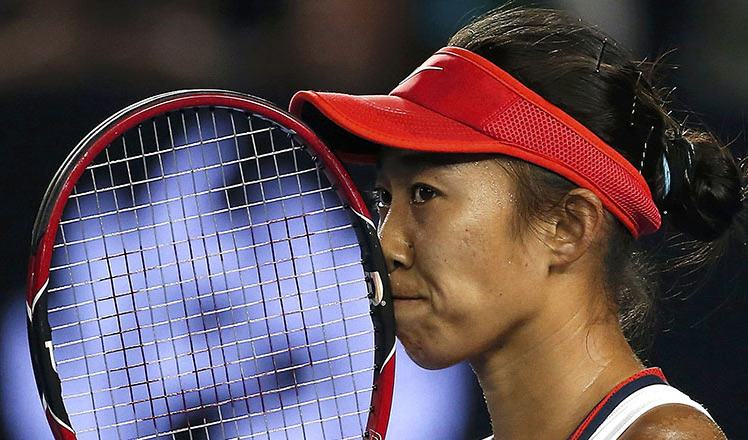Treasuring roots of a civilization
Updated: 2016-01-27 10:50
By Yang Yang(China Daily)
|
||||||||
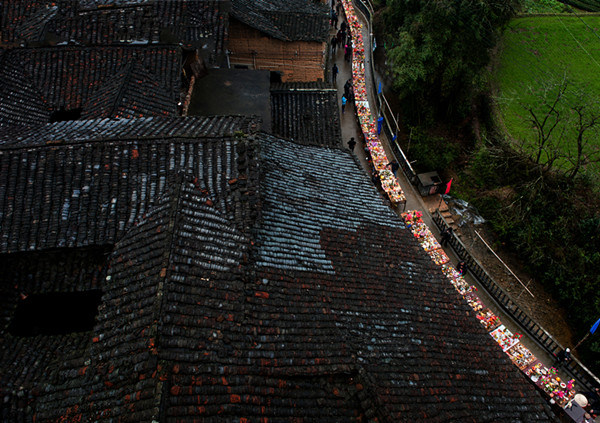 |
|
A long line of tables is set up in a village during an ancestral-worship ritual in Songyang county, Zhejiang province.[Photo by Lyu Jintian/ China Daily] |
Over the past two decades, author and artist Feng Jicai has been investigating, saving and protecting folk heritage, which is vanishing amid fast changes in Chinese society.
Among his recent books on folk culture is Heritage of 20 Ancient Villages by Beijing-based Culture and Art Publishing House.
The 74-year-old's interest in the country's ancient villages can be traced back to 2002, when he led a group of cultural experts to Hougou village in North China's Shanxi province.
The study of ancient villages in China started in mid-2014, under the ministries of housing and urban-rural development, culture and finance, and the State Administration of Cultural Heritage.
"China is going through fast transformation, from an agricultural society to an industrial one. So, we regard this heritage as our cultural wealth, which we must protect. The Spring Festival is one such case," Feng said at a recent ceremony to launch his book in Beijing.
"In the past, folk culture was inherited naturally from one generation to another, but not anymore. It is the responsibility of intellectuals like ourselves to think about it and act."
According to Pu Jiao, deputy director of China's Traditional Village Protection and Development Research Center, Feng's knowledge of ancient villages comes from his travels across the country.
Feng expects about 1,500 more such villages will be added to the current list of 2,555 that was compiled after three rounds of data analysis.
"But we will have to wait for the official announcement," Pu says.
- State Parties of Convention for the Safeguarding of the Intangible Cultural Heritage 2003(As of 2015)
- North China cultural heritage Spring Festival exhibition
- Tibet builds digital safe-deposit for intangible heritage
- Government needs to clarify policy over heritage site
- Buddhist sculptures displayed at Bao'en Temple Heritage Museum
- A glimpse of Spring Rush: little migrant birds on the way home
- Policy puts focus on genuine artistic students
- Police unravel market where babies are bought, sold as commodities
- More older pregnant women expected
- Netizen backlash 'ugly' Spring Festival Gala mascot
- China builds Mongolian language corpus
- Special envoy to visit Laos and Vietnam
- El Nino expected to wreak havoc in S. America well into 2016
- Police officer rescues frightened sloth at corner of busy highway
- US Secretary of State visits Laos, aiming to boost ties
- 2 Chinese nationals killed, 1 injured in suspected bomb attack in Laos
- New York, Washington clean up after fatal blizzard

 Creation of China Daily's Tibetan-style font
Creation of China Daily's Tibetan-style font
 Drone makers see soaring growth but dark clouds circle industry
Drone makers see soaring growth but dark clouds circle industry China's Zhang reaches Australian Open quarterfinals
China's Zhang reaches Australian Open quarterfinals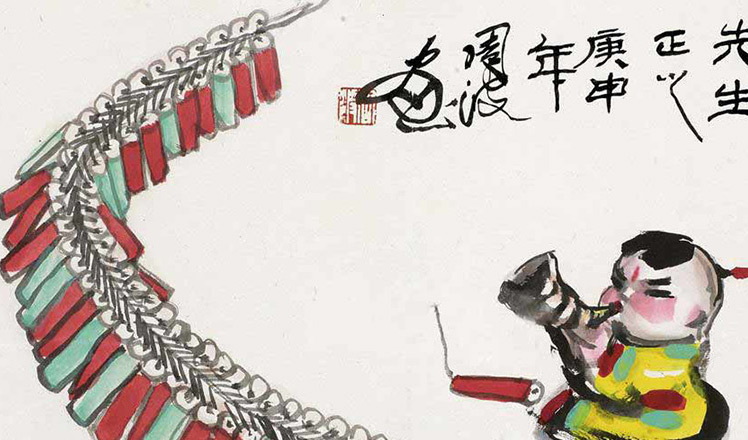
 Spring Festival in the eyes of Chinese painters
Spring Festival in the eyes of Chinese painters
 Cold snap brings joy and beauty to south China
Cold snap brings joy and beauty to south China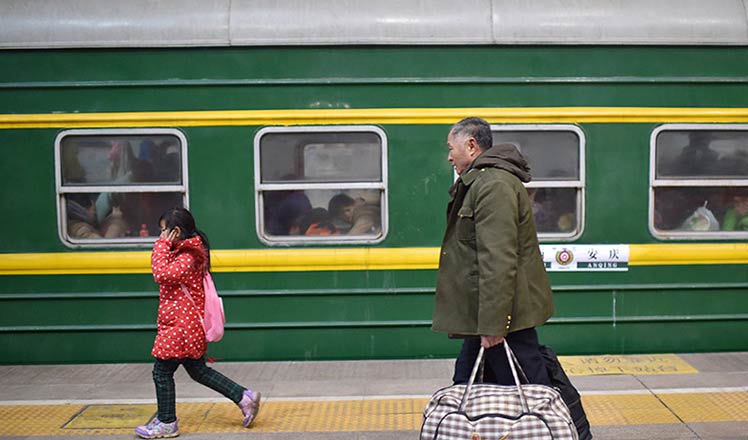
 First trains of Spring Festival travel depart around China
First trains of Spring Festival travel depart around China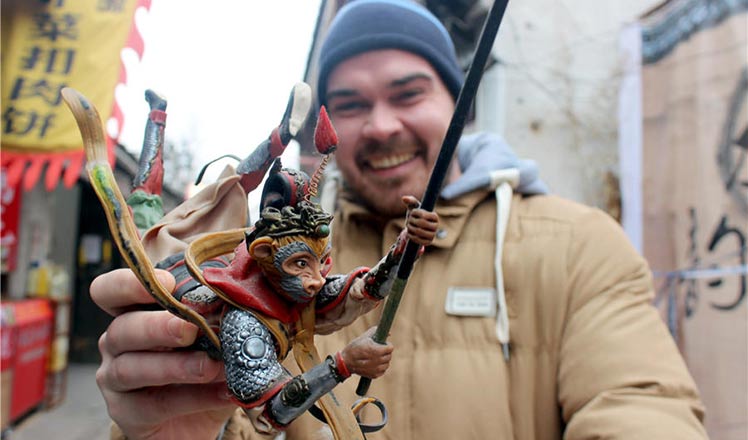
 Dough figurines of Monkey King welcome the New Year
Dough figurines of Monkey King welcome the New Year
 Ning Zetao, Liu Hong named China's athletes of the year
Ning Zetao, Liu Hong named China's athletes of the year
Most Viewed
Editor's Picks

|

|

|

|

|

|
Today's Top News
National Art Museum showing 400 puppets in new exhibition
Finest Chinese porcelains expected to fetch over $28 million
Monkey portraits by Chinese ink painting masters
Beijing's movie fans in for new experience
Obama to deliver final State of the Union speech
Shooting rampage at US social services agency leaves 14 dead
Chinese bargain hunters are changing the retail game
Chinese president arrives in Turkey for G20 summit
US Weekly

|

|
